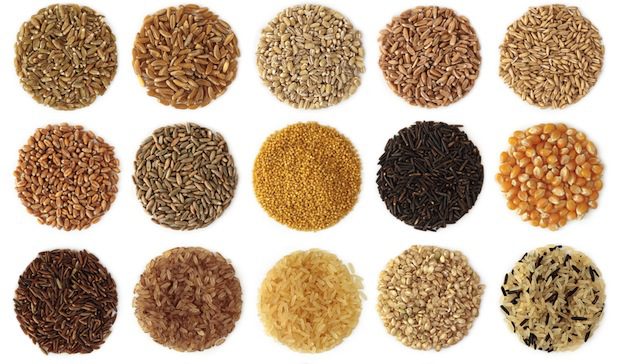Against the Grains

Just over a week ago, results of a big NIH study came out showing that low-carb diets are the best. Excerpt:
People who avoid carbohydrates and eat more fat, even saturated fat, lose more body fat and have fewer cardiovascular risks than people who follow the low-fat diet that health authorities have favored for decades, a major new study shows.
The findings are unlikely to be the final salvo in what has been a long and often contentious debate about what foods are best to eat for weight loss and overall health. The notion that dietary fat is harmful, particularly saturated fat, arose decades ago from comparisons of disease rates among large national populations.
But more recent clinical studies in which individuals and their diets were assessed over time have produced a more complex picture. Some have provided strong evidence that people can sharply reduce their heart disease risk by eating fewer carbohydrates and more dietary fat, with the exception of trans fats. The new findings suggest that this strategy more effectively reduces body fat and also lowers overall weight.
The new study was financed by the National Institutes of Health and published in the Annals of Internal Medicine. It included a racially diverse group of 150 men and women — a rarity in clinical nutrition studies — who were assigned to follow diets for one year that limited either the amount of carbs or fat that they could eat, but not overall calories.
“To my knowledge, this is one of the first long-term trials that’s given these diets without calorie restrictions,” said Dariush Mozaffarian, the dean of the Friedman School of Nutrition Science and Policy at Tufts University, who was not involved in the new study. “It shows that in a free-living setting, cutting your carbs helps you lose weight without focusing on calories. And that’s really important because someone can change what they eat more easily than trying to cut down on their calories.”
When I read that the weekend before last, I thought, “Well, hell, I’m going back to the low-carb diet.” As you may recall, one of the unpleasant effects of the chronic mononucleosis with which I’m dealing has been significant weight gain. It has made me so sedentary that I now weigh more than I ever have. My doctor has been telling me to lose some weight, but nothing I’ve tried has worked.
The only diet that has ever worked for me in the past has been the low-carb diet. So, why not try it again?
I started it on Sunday September 3. Here’s why I bring it up now: I found that after doing without wheat, corn, rice, and potatoes, the mono symptoms had dramatically declined. Not gone away, but gotten a lot better. Normally I have constant inflammation in my nasal passages, and feel worn down, as if my body were doing all it could to fight off an invader. That still happens, but not nearly as often. Every day I was having to take a nap several hours long, in the middle of the day. I’ve only had to do that once since I began this diet. I even noticed that symptoms of Raynaud’s Syndrome, an autoimmune condition with which I was diagnosed six or seven years ago, have become milder.
It seems pretty clear to me that my body has some sort of strong aversion to grains. (This does not include potatoes, of course, but I’m not going to eat them now for weight loss purposes.) If you google “grains” and “autoimmune,” you will find more websites than you can handle arguing that grains either cause or contribute to autoimmune disorders. Within the autism spectrum community, some people have had luck ameliorating their children’s symptoms by going gluten-free, but we didn’t notice much of an effect on our son. I wouldn’t say the gluten-free diet is ineffective, because I know families who have found it effective, but it is not a panacea for autism symptoms.
However, might it be something of a cure for my autoimmune condition? Going grain-free, which is to say gluten-free, will not cure the Epstein-Barr Virus, which causes mono; that’s there forever. But it might be the case that my body is so overtaxed by having to fight off grains, which it somehow recognizes as an invader, that it gives EBV (and Raynaud’s) more reign than they would otherwise have.
It’s a theory. We’re going to see where this goes. I reported results to my doctor last night, and he told me to stick to the diet for now, and to keep him informed.
I love bread and pasta and all of it, but I’d rather be healthy. I’d rather not drag around all the time feeling worn out, and having to sleep every damn day, in the middle of the day.
What is your experience?
Subscribe for as little as $5/mo to start commenting on Rod’s blog.